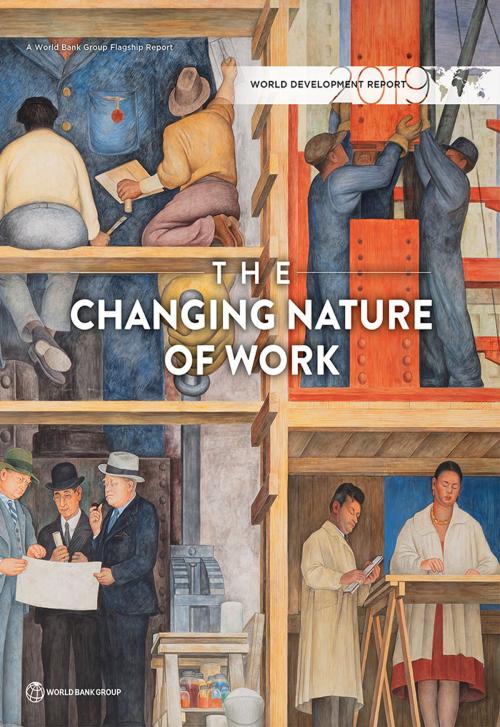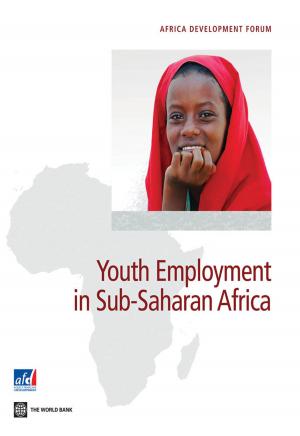World Development Report 2019
The Changing Nature of Work
Business & Finance, Career Planning & Job Hunting, Labor, Economics, Economic Development| Author: | World Bank | ISBN: | 9781464813566 |
| Publisher: | World Bank Publications | Publication: | October 31, 2018 |
| Imprint: | World Bank Publications | Language: | English |
| Author: | World Bank |
| ISBN: | 9781464813566 |
| Publisher: | World Bank Publications |
| Publication: | October 31, 2018 |
| Imprint: | World Bank Publications |
| Language: | English |
Work is constantly reshaped by technological progress. New ways of production are adopted, markets expand, and societies evolve. But some changes provoke more attention than others, in part due to the vast uncertainty involved in making predictions about the future. The 2019 World Development Report will study how the nature of work is changing as a result of advances in technology today. Technological progress disrupts existing systems. A new social contract is needed to smooth the transition and guard against rising inequality. Significant investments in human capital throughout a person’s lifecycle are vital to this effort. If workers are to stay competitive against machines they need to train or retool existing skills. A social protection system that includes a minimum basic level of protection for workers and citizens can complement new forms of employment. Improved private sector policies to encourage startup activity and competition can help countries compete in the digital age. Governments also need to ensure that firms pay their fair share of taxes, in part to fund this new social contract. The 2019 World Development Report presents an analysis of these issues based upon the available evidence.
Work is constantly reshaped by technological progress. New ways of production are adopted, markets expand, and societies evolve. But some changes provoke more attention than others, in part due to the vast uncertainty involved in making predictions about the future. The 2019 World Development Report will study how the nature of work is changing as a result of advances in technology today. Technological progress disrupts existing systems. A new social contract is needed to smooth the transition and guard against rising inequality. Significant investments in human capital throughout a person’s lifecycle are vital to this effort. If workers are to stay competitive against machines they need to train or retool existing skills. A social protection system that includes a minimum basic level of protection for workers and citizens can complement new forms of employment. Improved private sector policies to encourage startup activity and competition can help countries compete in the digital age. Governments also need to ensure that firms pay their fair share of taxes, in part to fund this new social contract. The 2019 World Development Report presents an analysis of these issues based upon the available evidence.















